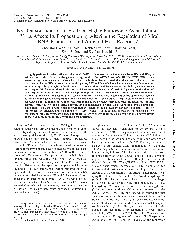摘要
Highly pathogenic avian influenza viruses (HPAIV) with reassorted NS segments from H5- and H7-type avian virus strains placed in the genetic background of the A/FPV/Rostock/34 HPAIV (FPV; H7N1) were generated by reverse genetics. Virological characterizations demonstrated that the growth kinetics of the reassortant viruses differed from that of wild-type (wt) FPV and depended on whether cells were of mammalian or avian origin. Surprisingly, molecular analysis revealed that the different reassortant NS segments were not only responsible for alterations in the antiviral host response but also affected viral genome replication and transcription as well as nuclear ribonucleoprotein (RNP) export. RNP reconstitution experiments demonstrated that the effects on accumulation levels of viral RNA species were dependent on the specific NS segment as well as on the genetic background of the RNA-dependent RNA polymerase (RdRp). Beta interferon (IFN-beta) expression and the induction of apoptosis were found to be inversely correlated with the magnitude of viral growth, while the NS allele, virus subtype, and nonstructural protein NS1 expression levels showed no correlation. Thus, these results demonstrate that the origin of the NS segment can have a dramatic effect on the replication efficiency and host range of HPAIV. Overall, our data suggest that the propagation of NS reassortant influenza viruses is affected at multiple steps of the viral life cycle as a result of the different effects of the NS1 protein on multiple viral and host functions.
- 出版日期2010-11
- 单位河北医科大学
